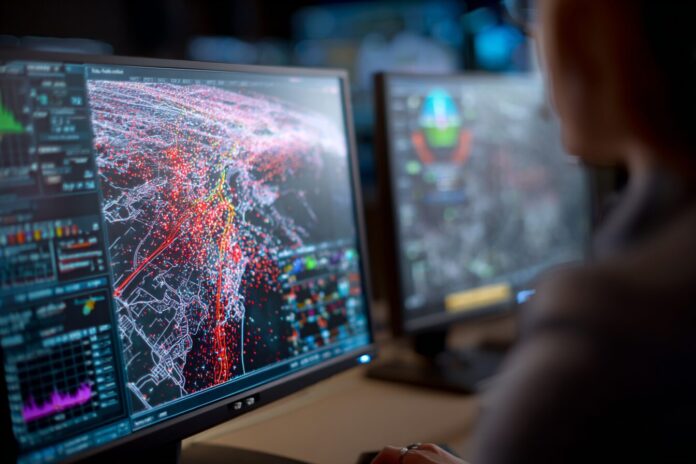The Changing Landscape of Air Traffic Control
Over the past decade, the aviation industry has experienced a revolutionary shift with the increased adoption of artificial intelligence. Most importantly, AI systems now assist in tracking flight paths, managing airspace, and processing weather patterns in real time. Because of its ability to process vast amounts of data, AI is gradually transforming traditional air traffic control (ATC) methods and making aviation safer.
Besides that, emerging technologies are redefining how safety protocols are implemented, with innovations that offer advanced data analytics and predictive insights. As a result, both air traffic controllers and engineers are now embracing new tools that help optimize operations and minimize risks. Such advances have been highlighted by experts in the field, emphasizing that AI is not just a futuristic tool but a current asset in improving ATC safety standards.
AI’s Promising Role in Aviation Safety
AI-driven technologies bring several key benefits to the realm of air traffic management. Most importantly, their capacity for instantaneous data processing can predict potential hazards, such as aircraft conflicts and severe weather disruptions, before they escalate into emergencies. Therefore, by integrating real-time inputs with decision support systems, AI contributes significantly to enhancing flight safety and efficiency.
Moreover, advanced conflict detection systems and traffic prediction tools operate continuously to monitor busy airspace. Because these innovations are designed to flag risks early, human controllers can intervene promptly, thus reducing the likelihood of delays or near-misses. Industry leaders, such as those referenced in Vaughn College’s insights, illustrate how these systems are already making a measurable impact at major airports worldwide [5].
Complex Challenges: Why Human Controllers Still Matter
Despite the promising role of AI, various challenges persist that underscore the indispensable role of human air traffic controllers. Most importantly, while AI excels in pattern recognition and routine decision-making, it currently lacks the nuanced judgment required during sudden emergencies. Because unpredictable scenarios such as rapid weather changes or unforeseen technical issues require adaptive problem-solving skills, human intervention remains crucial.
Furthermore, regulatory hurdles and the necessity for stringent safety validations hinder the path to full automation in ATC. Besides that, industry experts argue that the empathy, quick judgment, and comprehensive situational awareness offered by seasoned controllers are irreplaceable. As mentioned in multiple sources including [1] and [3], the current state of technology ensures that the robust expertise of human controllers remains essential for managing complex, high-pressure scenarios.
The Hybrid Approach: AI as a Copilot, Not a Replacement
In light of the limitations outlined, the aviation sector is gravitating towards a hybrid model where AI assists rather than completely replaces human controllers. Most importantly, this approach leverages AI as a trusted copilot that can analyze data rapidly, flag potential issues, and suggest optimal corrective measures. Because decisions on critical flight paths or emergency procedures still require human oversight, this partnership fosters both safety and operational efficiency.
Moreover, real-world applications at leading airports, such as London Heathrow, demonstrate the practical benefits of this synergy. Transitioning gradually into more complex decision-making support roles, AI systems gain experience over time while keeping human professionals in the loop. This collaborative model enhances both the speed and accuracy of ATC responses, as highlighted by sources like [4].
Will AI Ever Fully Replace Human ATC?
Although there are predictions about a future dominated by autonomously operating ATC systems, most experts remain cautious. Most importantly, current trends indicate that fully autonomous air traffic management is still far from a reality. Because AI excels at handling structured, predictable tasks, the element of human intuition remains critical during unpredictable emergencies and intricate airspace challenges.
Furthermore, even as machine learning models evolve, the fundamental need for robust communication and emotional intelligence during crises will persist. Therefore, while AI can enhance operational efficiency and reduce workloads, complete replacement of human controllers is unlikely. This balance is supported by perspectives from detailed analysis on platforms like [3] and insights from aviation experts at Vaughn College [5].
The Road Ahead: Collaboration for Safer Skies
In summary, the future of air traffic control is not a question of whether AI can completely replace human controllers, but rather how these technologies can work together to create safer skies. Most importantly, the combination of advanced AI systems and human expertise paves the way for a more robust and responsive ATC framework. Because each brings unique strengths to the table, collaboration is the key to reducing airline accidents and enhancing overall flight safety.
Additionally, ongoing research and developments continue to refine this partnership, with forward-thinking strategies enabling gradual integration of AI tools. Transition words such as ‘therefore’ and ‘besides that’ capture the essence of this dynamic relationship. Ultimately, by fostering an environment of continuous innovation and human oversight, the aviation sector is set to achieve unprecedented improvements in safety and operational efficiency.
References
- Could AI Replace Air Traffic Controllers to Improve Aviation Safety?
- Can AI Replace Air Traffic Controllers?
- A.I. isn’t Replacing Air Traffic Controllers… Just Yet
- How AI could make air travel safer, smarter, and smoother …
- The Impact of AI on Air Traffic Control | Vaughn College



